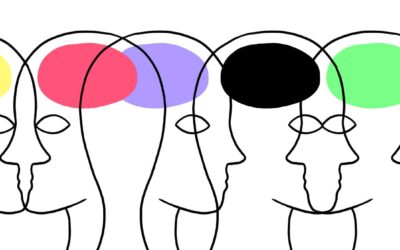The statistics surrounding children on the spectrum in relation to bullying are alarming. Recent statistics show that they are 2 to 3 times more likely to get bullied compared to their neurotypical peers. Why is this? What coping mechanisms can I as a parent, teacher or caregiver give to my child? This post will expand on the above questions, signs to look out for if you think your child is being bullied as well as tips on how to handle and overcome bullying.
“Bullying is something that no one should ever have to experience”
Why children on the autism spectrum are vulnerable to getting bullied:
Bullying is common amongst all children, however certain characteristics of children with autism make them easier targets. Characteristics and factors that may play a role:
-Many children living with autism are unable to verbally communicate their thoughts and feelings. Some are socially cut off from their peers. Feelings of low self worth/ low self esteem. Difficulty understanding facial expressions and emotions. Bullies often tend to choose easier targets that are unable to respond assertively. A child with autism often struggles understanding social nuances and sarcasm.
Prevention strategies:
I’d like to break this up into two parts. 1. Addressing the needs of the autistic community and 2. the environment and preconceived stereotypes that eventually leads to bullying.
- Speak to your child about appropriate and inappropriate ways on how someone should treat their peers. If a child struggles with understanding emotions it is very difficult for them to know if they are being bullied. They might feel hurt but may not know how to express themselves.
- If they are being bullied at school, speak to their teacher about your concerns. Advocate for a no bullying policy.
- Members of the school, sports team, other teachers, support workers etc. need to be informed and provided with the correct tools to look out for bullying. They also need to be made aware of how autistic children may/ may not respond to bullying. Creating an environment of acceptance and change can limit bullying from occurring.
- Teachers need to address any sign of bullying they are aware of to the school body.
- Teachers need to step up and in between the two parties when bullying is occurring. They need to remove both parties to a quiet, safe space where the teacher needs to communicate simply, calmly and logically to the bully.
- Teachers need to be on the look out and ask fellow peers about the dynamics between peers on a regular basis.
- Parents need to visit the school often.
- Always have open communication channels with the principle, teachers and support teachers.
- Encourage the school to implement a buddy system
- Mentor your child. Remind them of their strengths and how loved they are.
“Do not fear people with autism, embrace them. Do not spite people with autism, unite them.
Do not deny people with autism, accept them, for their abilities will shine.”
-Paul Isaacs, Autism Training, Consultant, Speaker and Author
Parents of children with special needs are true superhero’s and it is heartbreaking to have to deal with bullying on top of it all. Although bullying in inevitable, it can be prevented. I hope this article has provided you with the necessary information and tools to equip yourself on how to handle bullying.



0 Comments